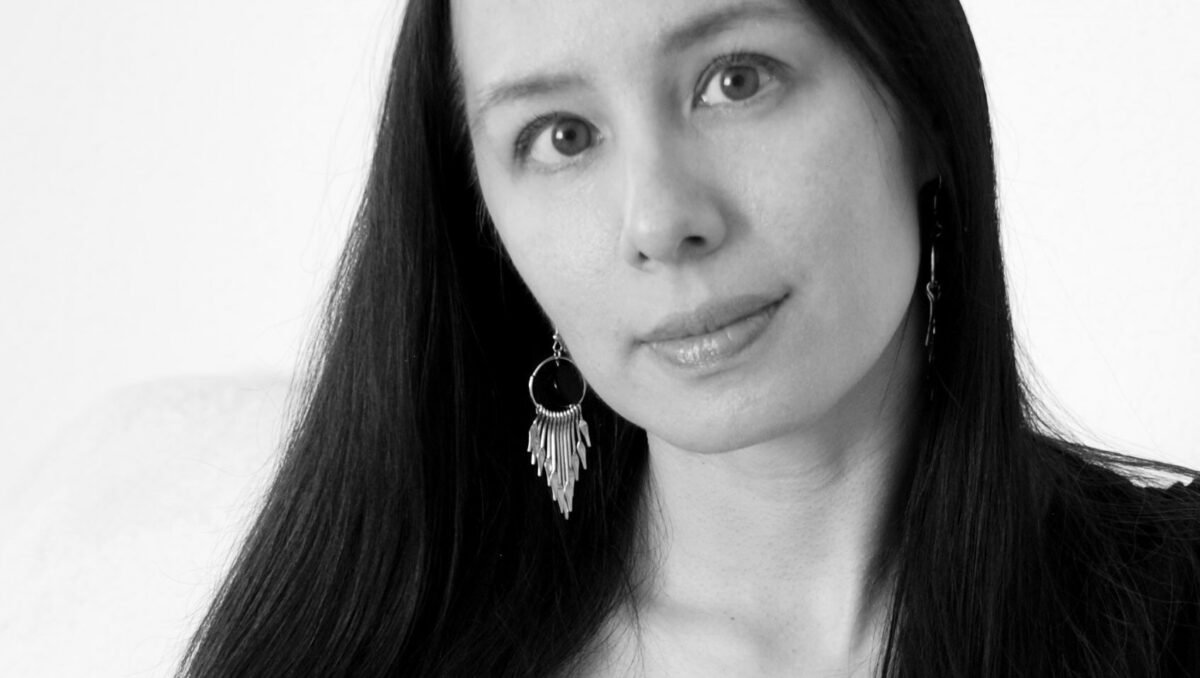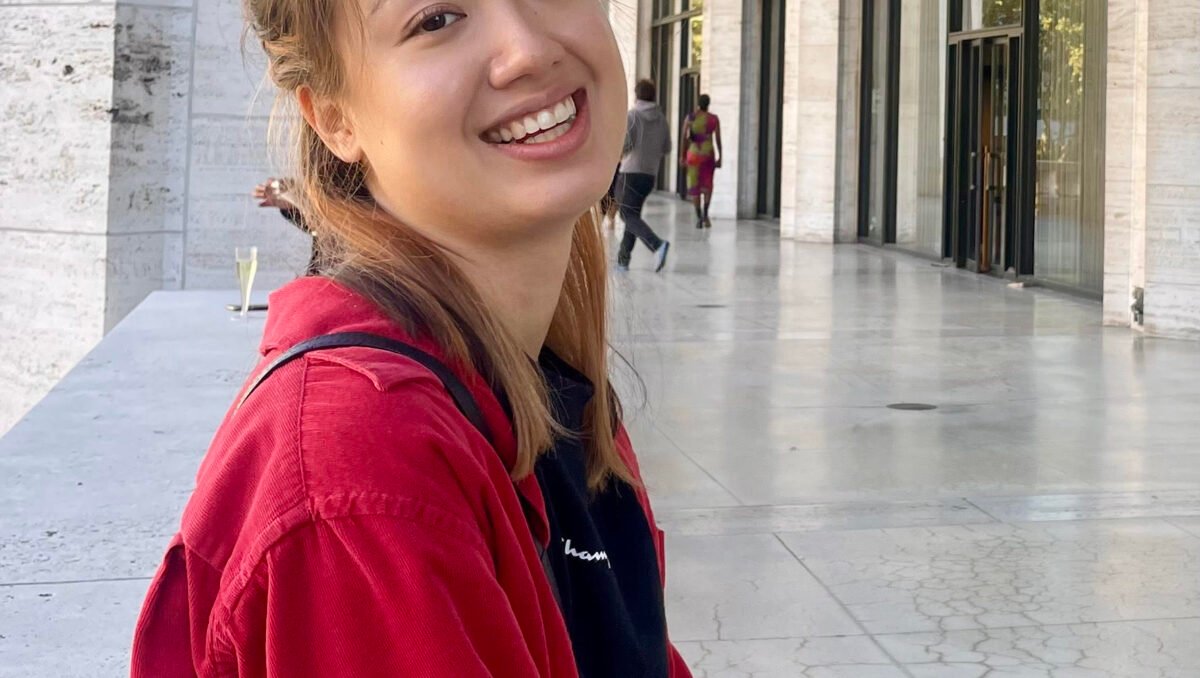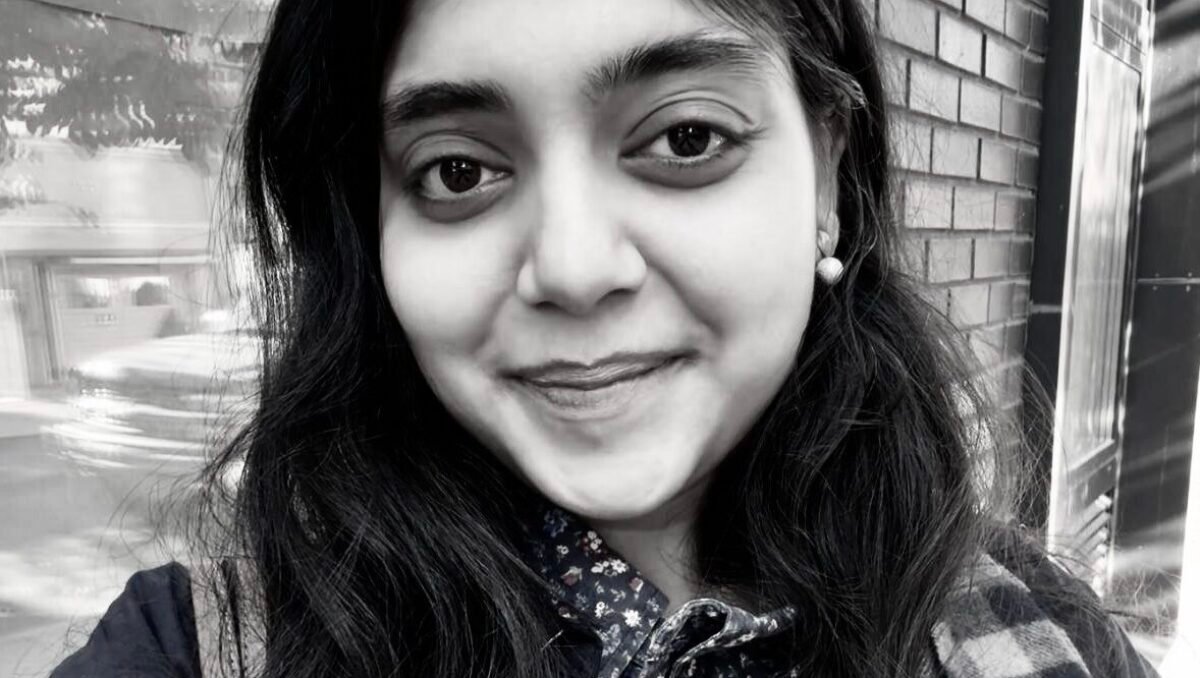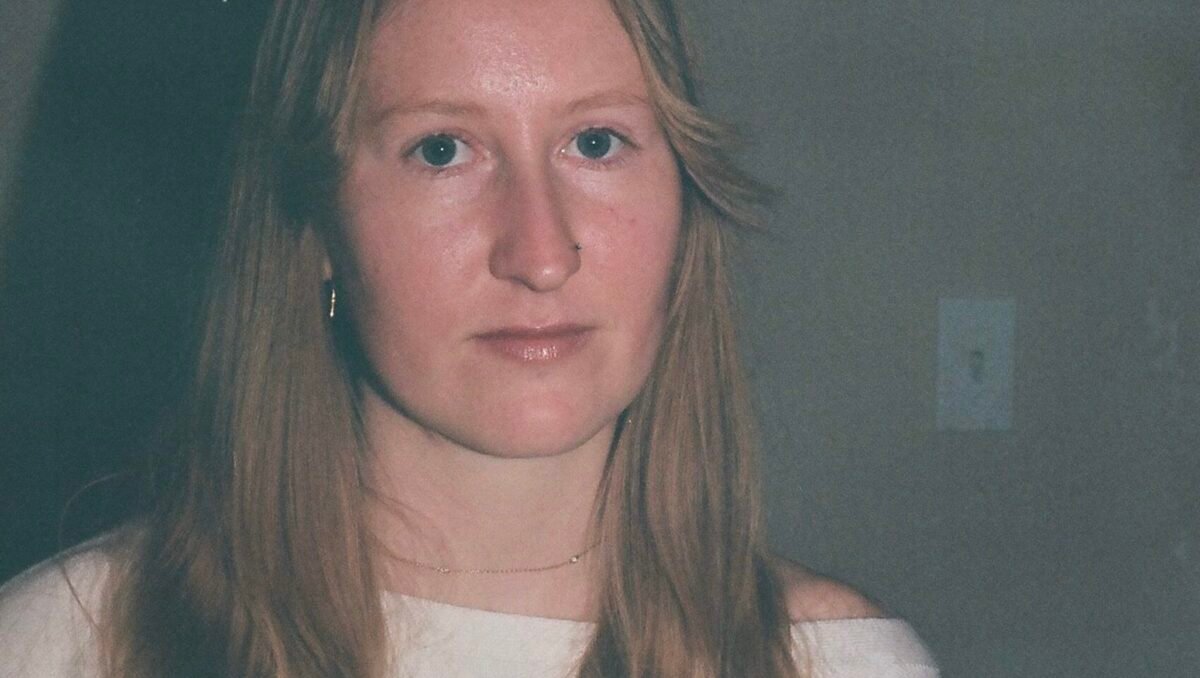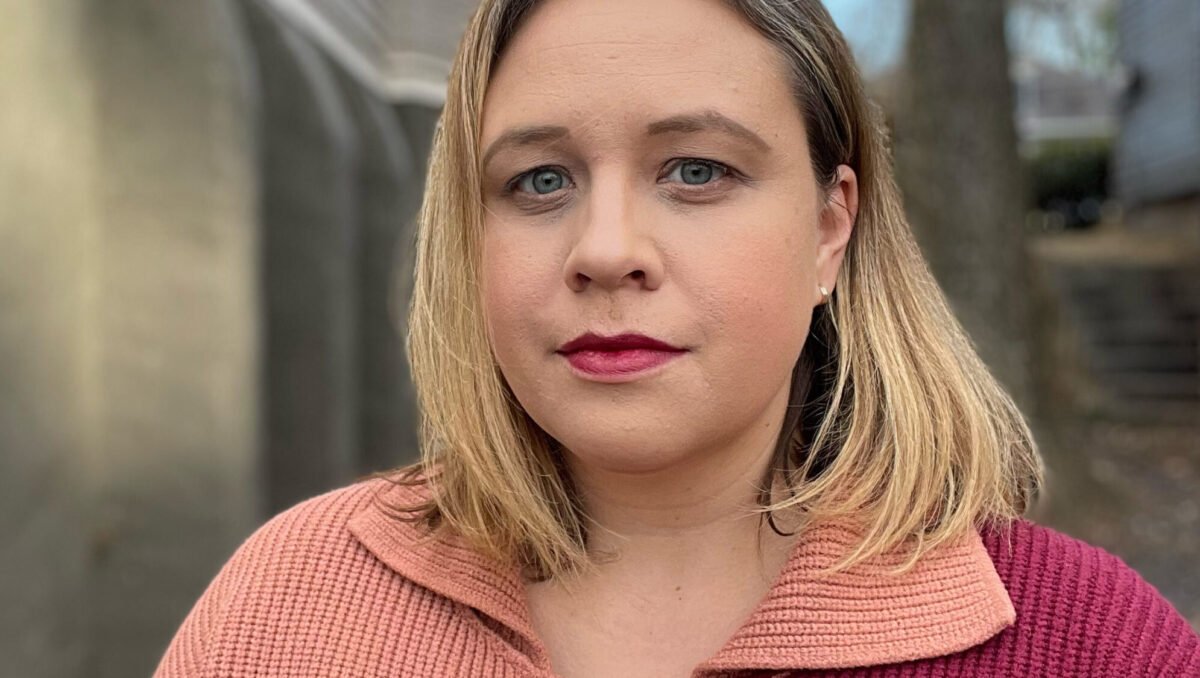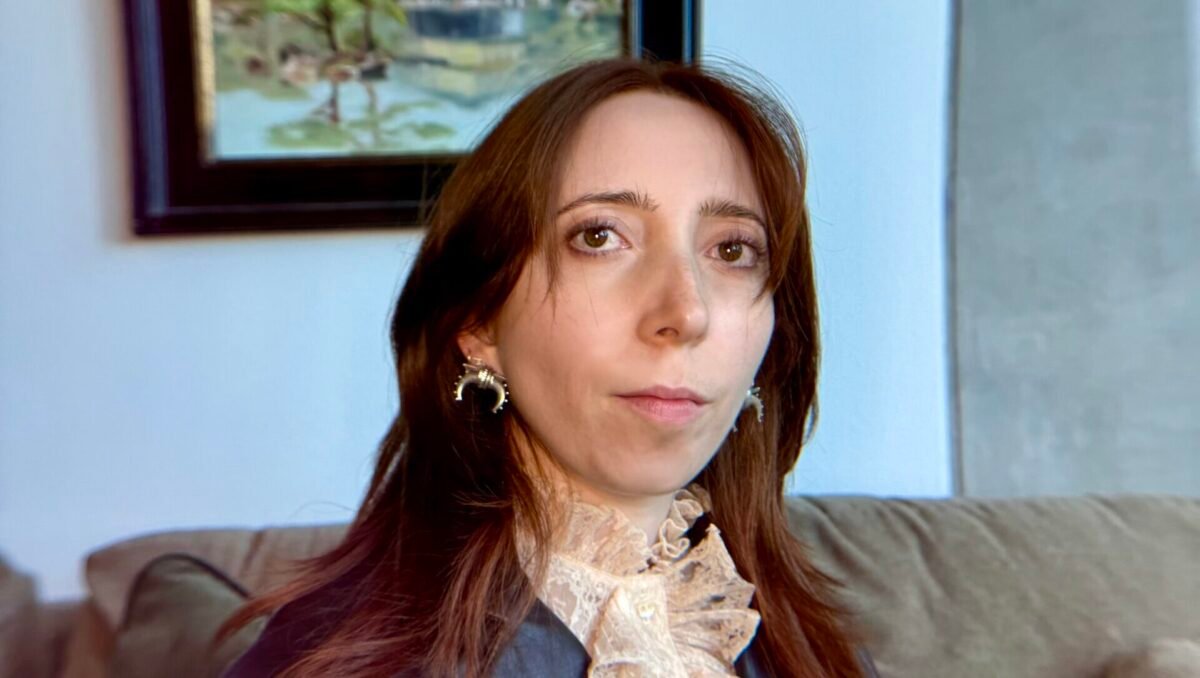ISSUE 33

POETRY
FLEVATO by Richard Siken
PARIS by Elly Bookman
THE BABIES by Dara Yen Elerath
YESTERDAY AUSTIN TOLD ME TWO SWANS by Arro Mandell
PASSTHROUGH by Haley Lee
GOLD by Kunjana Parashar
BLUE PERIOD by James O’Leary
THE YEAR YOU DIED by Vasvi Kejriwal
TWO POEMS by Alexa Luborsky
TWO POEMS by Caroline Richards
TWO POEMS by Corinna Rosendahl
FICTION
RUN by Katherine Vondy
THE GATEWAY by Laura Wolf Benziker
- Published in All Issues, home, Issue 33
THE BABIES by Dara Yen Elerath
I am watching the babies. The gray one in sticky pants who keeps picking his nose. The pale one with headlice, scabies and fleas. I am watching the babies. This one choking on a plastic bottle. This one talking to itself in the dark. I am hauling the babies to the park, to the library, to the pool. The orange-hued baby is dirty and plays with crayons. The makeshift baby is taped together like a cardboard box. Where did these odd babies come from? Why are they languid and dull—limp in their cradles as loaves of bread? Why do I find them now in the garbage, now in the fork drawer, now in the kitchen sink? I grab a pink one crawling from between my thighs. I clutch a yellow one suckling upon my breasts. I find one hanging from branches like a piece of fruit. This one I dug from the dirt like a vegetable freckled with roothairs and worms. I gather the babies and turn them over, looking for the maker’s mark, but find no scrawl, no autograph, no trace of when or how these babies were made. I try to abandon them, but they come crawling after. I put them in a hamper, but they clamber out and grab my hair. These babies are my babies. I take them everywhere. This one carries my kneecap. This one carries my thigh. This one carries my heart.
- Published in Featured Poetry, Issue 33, Poetry
YESTERDAY AUSTIN TOLD ME TWO SWANS by Arro Mandell
drowned a local man
for coming too close and
Thomas and I laughed but
I still think if I don’t count my teeth
they’ll be taken, can’t
be careful enough out here.
Last night I stepped onto a
stage heaped with dead
fish. I was looking for the right
earrings and late to tea. An
army approached but
I couldn’t quite remember
to remember. Downstage
trenches crept closer and closer
to the cafe. The man with the sword
hoped to take my life. Twenty-six
teeth. More than I
started with but less than
I once had. Am I missing
something? The skirt of my blue
dress was just a little too tight
for me to throw punches
but I wasn’t worried–
the tea was so good
and so warm. The fish
stank and I didn’t notice.
That night my lover had made us
a bed in the open window so we
could sleep listening to the rain.
My days hemorrhage;
I can barely recall what
I’ve done with them.
Yesterday Thomas told us he
almost lost his hands
in a freight elevator and
afterwards looked at them
all day astounded and now
doesn’t think of them
anymore without getting
a little sick. Last night I woke
horrified at the war, at my body
pale as the fish, and stared
at the shadows of houses the gleams
of wet bushes the drunk trees and reached
for my lover’s sleeping hands.
I’d known them a couple
days didn’t want them
to cover any of my
confusions, didn’t need
to borrow a future from them.
They would kiss both my cheeks
quick and I liked to look at their eyes
the little chip in their left iris where the blue
dripped into the whites. I looked
as long as I could in the dim
morning with no sun and
no wind but they were already driving
cities away leaving me stunned
at what I didn’t have
and hadn’t known to want.
- Published in Featured Poetry, Issue 33, Poetry
PASSTHROUGH by Haley Lee
After the play we talk while
we wait for the C with our shoes
touching on the platform. Say,
when the magician unrolled
the sea, an old tunnel in us
burst open. Lights off, all
air – with you I believe
in water wrung from paper.
They didn’t need to use names
to make us understand the whole
premise is being alone at the
end. Can I say, I like when
the train gets stuck. For a click,
time stops dying in us. And
at the end, we only want to
go again. Against the current:
delay my breath.
- Published in Featured Poetry, Issue 33, Poetry
GOLD by Kunjana Parashar
Lately, I’ve been yearning for things: car keys,
houseplants, dhurries, cubes of ice, petals,
but really for something skin-deep. I keep
addressing myself as we; like I am the bull
& I am the matador. I am the prayer and
the devotee. We are prying open our mouths
to sing. We are the ear and we are the song.
We are two rundown radios talking
in a frequency none of us knows
how to reach, let alone emit our rightful sounds.
I’m trying to be someone other than me.
I’m trying to be the woman who shucks
oysters clean. Dredges them from
the depths of the sea with her bare teeth.
I’m trying to be her gold tooth, her
one and only, mended with the light
of the auric sun. Changing the form
of what’s obscene in me. Filigreeing
my fucking bones. All the crops
of all the lands genuflecting
to the bright brag of me.
- Published in Featured Poetry, Issue 33, Poetry
BLUE PERIOD by James O’Leary
It’s 9:31 PM where the end
of the city tinges the sea. An empty
spiderweb hangs motionless between
the blinds & the closed window leaking
the street’s neon onto the unmade bed. No
moon. Not even the comfort of wine,
bottles shaped like the body I want,
& will never have. I keep thinking about
the group of boys I passed huddled
around their broken car like priests over
an altar. I want to drink, to forget;
it makes the fashion of my sadness
tolerable. Driving on the highway, city
-fluxed, sober, trying to ignore my engine
light, my mind’s tidal drift reminds me
I never made it to my childhood
best friend’s funeral. Avoided it,
so I didn’t have to see his family,
the sharp angles of his still face. The radio
asks where the joy has gone; I try
to find it, I do, admire clouds, make food
for the people I claim to love. & the difference
between a claim & a lie is my hands,
their learned fluency in devotion
under the passage of each spent moon.
& the difference between the end of the sea
& the start of the sea, is how I feel
when I open the window & listen
to the pages of the water turn. Tonight
the sky tastes like ozone & time—I buy
a bouquet of chrysanthemums
for my beloved, a full tank of gas.
There’s safety from suicidal ideation
in imagining the material reality of the other
drivers, the names of their daughters
or sons as strange as wildflowers
a loved one might leave
on their sudden tombs. After
I spend the night piecing back together
what fragments I can still
recall of my first friend’s face,
I am however sober it takes
to watch the ghosts
of our hometown retreat
from the blanket of the rising sun.
- Published in Featured Poetry, Issue 33, Poetry
THE YEAR YOU DIED by Vasvi Kejriwal
05/19:
A tornado flung a fridge into the bones of a tree.
Its bark, gnarled, like the mouth of someone, new to grief.
05/22:
I found your pen at the edge of the dresser.
Yet to collect dust, it held your fading
fingermarks.
06/18:
Then, hunger as a thing to be unafraid of.
How the terrapin emerged from a wallow,
found two lions erasing blood from the jaw.
Alone, it tried to get them to leave.
06/30:
I wore my death wish in secret
like a talisman. A fifth ocean to drown in.
07/07:
The panda was no longer endangered.
08/10:
The smaller zipped pouch, within the larger zipped compartment,
of your toiletry kit—as if its innermost secret.
Here, I found a condom. Unopened, sealed in plastic.
Expired a year and 3 months before you passed.
09/27:
The moon came without menses.
Finally spoke: Go to sleep.
10/06:
I grew closer
to being older than you’ll ever be.
11/19:
While civilians reached Space, I reached
for the silhouette of a stranger.
My body, flailed, like a fish stunned with air,
underneath his weight.
12/08:
I made a word that combined surrender
with vomit—knees, cold with linoleum, bent against
what your body could not hold—picking up
what X-rays could not.
01/01:
The world spun without you in it.
02/05:
Skin prayed but there was no skin to touch it.
03/11:
Like an invasion on a thousand hooves, the monsoon
paraded town. The house you’d built, quivered.
04/10:
A boy dipped out of a coma and stared at his own name
like it was combustible.
05/12:
When they came for clothes for the orphans,
your parka with the broken zipper—
I banished to the shadowed end of my drawer.
*
- Published in Featured Poetry, Issue 33, Poetry
TWO POEMS by Caroline Richards
Recovery poem with jargon
After reading Auden, I water my moth orchid with ice cubes
and watch a girl with green hair draw a benzene ring in white erase.
I pay attention to time. I arrange my table of books into heiroglyphs
and try to say something before the sun sets. In Midsummer Night’s Dream,
I am the forest. In tarot, the hanged man. In nightmares, the bottle
with infinite volume. Carpe noctem and carpe diem chasing each other
like clock hands. A möbius band. The shadow-harp. Carbon. Auden himself.
Recovery poem with an ocean between it
I came to understand vastness the way we come to understand anything.
The last seat opened in the church pew. I could see the top of the black casket,
I could smell the white lilies.
That’s just it, something in me moved to make room for one more.
Something bore a hole in my head and disappeared again.
The funeral came before the death, the grief before all of it.
In other terms, water is unlike dopamine except in its absence.
Then its presence is thorough as a flood. Gray water, downed trees,
pathways sealed. Chemical imbalance I was told in the white office
on the white paper, as though I could point from the same shore they did.
As though the tide had not come in and buried the sandbar where I once stood.
- Published in Featured Poetry, Issue 33, Poetry
TWO POEMS by Corinna Rosendahl
from Scenes from the Seconds
It was written
for an exhibition
that at
the end of her life
Louise Bourgeois circled back
to her birth1
When I did as asked
like long hair
I pulled my fire back
1Unknown
***
Henceforth and forever I am my own
mother2
crouched in dirt
squinting at the root
Oh but now
it’s just my look
loosened
to dive and surface
as if to risk worth
beyond birth
after which
the introductions are endless
2Roland Barthes, “Mourning Diary”
- Published in Featured Poetry, Issue 33, Poetry
PARIS by Elly Bookman
At seventeen I gazed a good ten minutes
at Saint Catherine Labouré’s incorruptible
palms around a rosary. Soon
I’d learn to drive a manual transmission,
the backward N of the ascending gears.
The still-war had been on for more than a year,
and there was something so similarly earned
in her un-atrophied grip. I knew
someone must’ve tended in secret to
the wax around her hands and face, and
that they’d given themselves a soldier’s
kind of grace, balancing deception against
the miracle it presented, like the clutch
and gas pedals at the moment of change.
It took a while to find the feel for it—
the confidence to hover between the two.
In the end it was something like joy, but
greedier. Like flying back across the ocean
to a peaceful country, where nothing decays.
- Published in Featured Poetry, Issue 33, Poetry
FLEVATO by Richard Siken
We are going to poison the rats, announced the Transit Authority. They had posted fliers but no one was reading them. The subway was crowded. I was late and trying to think diagonally, up and around the corners. I wasn’t used to it. I grew up in a flat land where there was no descending. The ground was too hard. The Transit Authority was responsible for a lot of signage—the trains had letters, the stations had names. There were arrows on everything. It was a lot to take in. I took the D train to work. I worked in a bookstore. I was responsible for fiction A through M. I took books out of boxes and put them on carts. I climbed the ladders and stocked the shelves. The ladders had wheels on them and slid back and forth in front of the shelves. I loved them. After work I would go drinking and then fall asleep on the train home and wake up in Coney Island. There was a sign at the far end of the Coney Island station platform that said FLEVATO. It had an arrow. I didn’t know if it was a place or a thing. I was always too rattled or blurry to check. It started to bug me. It was a mystery. I would climb the ladders at work and try to imagine it. I couldn’t imagine it. I lasted nine months. In the city, I mean. I burned through my savings, abandoned my things, and flew home broke. Before I left, I decided to find the FLEVATO. I took the train to Coney Island. I walked to the end of the station platform. The letters on the sign had peeled. The R was gone, the E was damaged. The sign read ELEVATOR.
- Published in Featured Poetry, home, Issue 33, Poetry
TWO POEMS by Alexa Luborsky
I was the wet cloth that kept the phyllo damp.
I was the rag that lifted and didn’t catch
the edges of things. I was lamplight.
In another place, I was shaina maidel.
Here, though, I was khokh- memory
and nots- space. I was khokhanots.
I was the kitchen, a whole geography
with borders of mother
and step-father. Bubbie was nowhere
here. She left herself
to be used by my hands. Something sticky—
I remember my place. The damp rag.
Sam’s dark skin shining through
thin sheets of dough like a frame
for me to enter. My mother, the baster,
scattering walnuts. We held
our breaths, Sam’s hands initiated
their curtain call: the placement of
dough on walnut.
Phyllo, diaphragm of breath. Phyllo,
second skin too easily aged by unsteady hands.
Curtain. Sash of sweetness.
This was my mother’s kitchen
on a Friday. It was almost Easter,
so we made paklava. It was
Pesach, so I couldn’t
eat it. Pulped walnuts
thrown on tin sheets.
Her voice cocooning the words:
Never buy them crushed!
I should write this down.
I’m too busy watching the maw
of phyllo laid down like a memory
to care about this recipe for myself—
I’m humming zucchinis—
my sounds long in Armenian.
No one minds squash any season.
I grow like this, keeping
my mind elsewhere. I don’t call to Bubbie
willingly. Without her, I know how I’m supposed
to move: All Armenian. We are doing the same things with our wrists
whether it is 1915 or no. Opening
our palms to cup something
paid dearly for. All words, papery layers of seed coats
stem out of the walnuts, manuscripts of black ink.
I crush them sideways
with the blade of my tongue.
I’m a good –nots. A good recipe
for what I am missing. I pull the cover
from a mirror. Memory space
meant only for one part of me.
Bubbie has never been
here. I dance and I sing
an Armenian dance, an Armenian song.
Why don’t you clap for me?
I say to her even though somewhere she might
actually be clapping. I know this
and still can’t see her making
a sound. There is an Armenian “I”
and a Jewish “I” and somewhere
there’s my body. The walnuts, shipwrecked
at the bottom of a syruped lake sit split
up on the tin sheet. Every one of my homes has its season.
Notes & Acknowledgements (Excerpt)
I was my own gravity. Enclosed in overlap, I occluded myself to feel like myself,
a bound thing, an ancestor of what I couldn’t feel. That oculus of a buried archive
dug down in the dark like a hole for me to enter as water. I wanted to be myself so
badly I made myself into a shape that had already promised to hurt me. So badly, I
shook the letters until they left me no choice but to announceknow what it felt like
to be unjust. To justify. I’d given up. I drowned myself in the
sounds To count her ribs, the iambics of her back breaking, I couldn’t make. I
asked myself to be long like bread between teeth. But now I am too tired to plead
like the water of me, the wound of me, andmy case. I confess, there is something
tragic in obeying I meant it even when I could a kind of becoming that blossoms
the longer it is ignored. not contain it, shouldn’t have tried. So I asked for the
person I buher her under apricot trees. I bless her like a promise. I loved most
inside me to leave.A lantern under their mausoleum. I make a gesture as if to II
danced and performed myself in all
the forms I could image myself into. If I tell you begin. I cannot think of
it. I cannot think of it this way my borders are not real,looping the diameter of
neck. She does not mind being a you’re forced to see the quasars spin, theorem. A
sentence is a theorem. She, an unfinished one. forced to see movement at the
edge I imitate the arcs of stars. Imperfect, never truly returning. of the atrocity
photographs that are so violent they’veeach pass. A shift so small it is
imperceptible at first, had to pull themselves from their time-
our bodies make each other under the pull of proximity. lines down into an unseeable mass.A
natural law. I am encoding a message only she can read. You’re forced to see
them move, as light, as My wrist flicks scatter the gods I called to bless. A lyri
dance. Dance, a mechanism of survival caught between absolute and absolution.
Circumcisiofor the Armenian people. Between battles, warriors religion from
proper heliocentrism to calf. A god unto would dance, their pinkies knittedherself.
Slain inheritance. My mother told me, be carefutogether, circling with the velocity
what you love. How could I not? O, arabesque of of a we I can’t access. This
we,Theachine of the beloved that turns her into antithesia we to honor their
survival, a we to defend the edges of Polar coordinates of self made manifesto of
other. the place you love with the outline of things Recursion of self and
self-conscious create the pitch of you make yourself into. What do you ask a
caravan hum. Doves babbling to each other like judges. I keep her of survivors of
survivors of survivors like a newborn abandoned in the shade, alive, waiting to b
except to survive? I asked them to stay and protected and
picked up by another. If this with whatever version of me I could manage, on the desperation, I don’t know. Later that evening, we made absurdity of the page so
we madzoon of her mother’s of
could dance in front of the gaps What else is there to say? …….,
their bodies made in the archives. I called to them’d I needed to know what it felt
like to be unjust. To justify. so you, reader, might see us dance, full of watert
her ribs, the iambics of her back breaking, of life, not spilled in the fields
the Turks like bread between teeth. But now I am too tired to made barren
from care, using the American Empire case. I confess, there is something tragic in
as an example of how. I asked myself a kind of becoming that blossoms the longer
it is ignored. to stay a little longer, just a little longer, inside the shape I buher her
under apricot trees. I bless her like a prinside the shape I’d tethered myself to,
until the vibration A lantern under their mausoleum. I make a gestuo of me
was too strong
to contain the mass I’d accumulated and I collapsed begin. I cannot think
of it this way. The blade, a curve a black hole, a point ofooping the diameter of
neck. She does not mind being a tension shelled in knowing. theorem.
A sentence is a theorem. She, an unfinished one. I’d left open the shroud of
my ancestral imitate the arcs of stars. Imperfect, never truly returning.
tongue. I couldn’t say I love you so I saidat each pass. A shift so small it is
imperceptible at first, it in cut fruits, just like my grandfather our bodies make
each other under the pull of proximity. had, just like he told me his father A
natural law. I am encoding a message only she can read. and his grandmother had.
I was taught how to makmeMy wrist flicks scatter the gods I called to bless. A
make silences, and then I taught caught between absolute and absolution.
Circumcision of myself how to make them visible. Still, I can’t say religion from
proper heliocentrism to calf. A god unto anything in my great-grandmother’s
herself. Slain inheritance. My mother told me, be careful dialect except with my
body,what you love. How could I not? O, arabesque of knife. this body that
survived through The machine of the beloved that turns her into antithesis. her
body’s survival. I opened the wounds of the names Polar coordinates of self made
manifesto of other. that hadn’t been spoken for generations and Recursion
of self and self-conscious create the pitch of
mispronounced them. What did you expect? hum. Doves babbling to each other
like judges. I keep her I wrote about places I should’ve beenike a newborn
abandoned in the shade, alive, and wanted revenge like it could cleanse picked
up by another. If this comes from mercy or me. Righteous in anger, I drew myself
apart like those desperation, I don’t know. Later that evening, we made
photographs of the genocide had taughtmadzoon of her moth eri
me to, destroyed myself away
from the air, from life, to live’d I needed to know what it felt like to be unjust. To
justify. as someone without ease. I laid down into the shapes I’d
seent her ribs, the iambics of her back breaking, and hoped would make me feel
less. Less guilty, like bread between teeth. But now I am too tired to less
alone, less. To miss it less. To miss Hayastan less. case. I confess, there is
something tragic in To miss life less. To miss being kind of becoming that
blossoms the longer it is ignored. someone without shame less, as if that longing
could lay I buher her under apricot trees. I bless her like outside my
body on a page. This was the
fallacy A lantern under their mauseum. I make a gesture as if t I clung to, wrote
into
my fingers rested on an ink that didn’t satisfybegin. I cannot think of it
this way. The blade, a curve the urge to know. All I knewlooping the diameter of
neck. She does not mind being a was that I couldn’t make it easy theorem. A
sentence is a theorem. She, an unfinished one. for you, reader. Show
you a spectacle the arcs of stars. Imperfect, never truly
returning. vwithout the cost of looking: I’m not here. Weeach pass. A
shift so small it is imperceptible at first, have erased the me that could have our
bodies make each other under the pull of proximity. written this. I turned to my
shame, A natural law. I am encoding a message only she can read. a shame that
was mostly my oppressors’ and said we makeMy wrist flicks scatter the gods I
called to bless. A so you couldn’t say No. Not me. caught between absolute and
absolution. Circumcision of You couldn’t redefine the stakes of agency with
shock. religion from proper heliocentrism to calf. A god unto Let’s hold our
pinkies high like we’re herself. Slain inheritance. My mother told me, be careful
mountains, holy, sacred, thewhat you love. How could I not? O, arabesque of
knife. Caucus Mountains, that we The machine of the beloved that turns her
into antithesis. are a we that never had to leave, never had to be this Polar
coordinates of self made manifesto of other. formulation of we
at all.
- Published in Featured Poetry, Issue 33, Poetry
- 1
- 2

